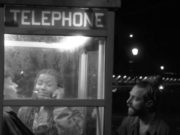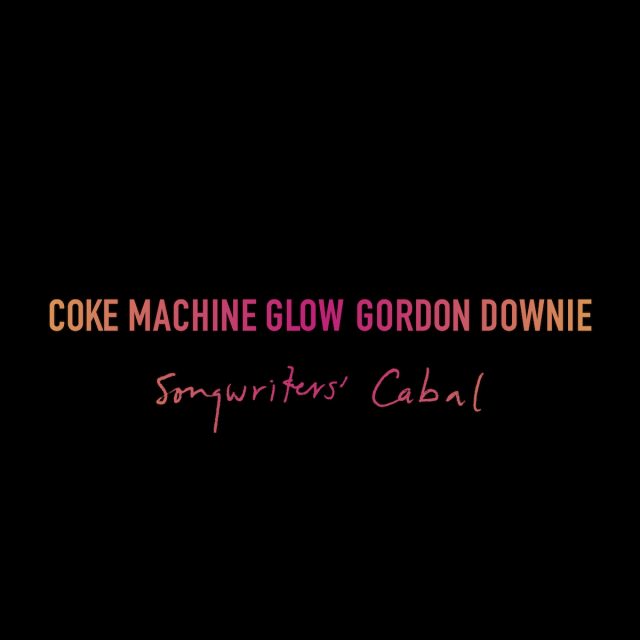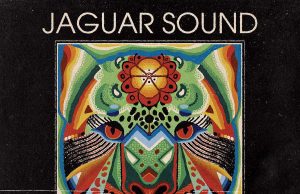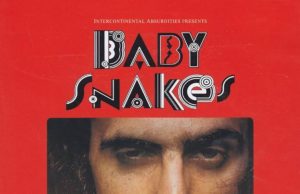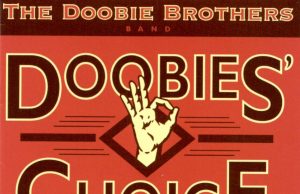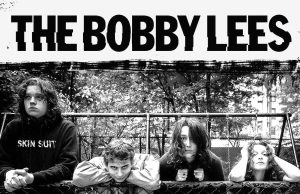THE EDITED PRESS RELEASE: “Gord Downie’s Coke Machine Glow was released in 2001, between Music @ Work (2000) and In Violet Light (2002), the ninth and 10th albums by his mighty band of brothers in The Tragically Hip. The first solo project by one of the world’s great wordsmiths, Coke Machine Glow’s 16 painterly songs were released with an accompanying book of poetry, collectively emanating Downie’s heartrending stories, from the road as from home, in his signature quirk and complex, approachable wit. Some 20 years since its release, Coke Machine Glow remains a teetering, charming body of work, never static, shot across its canvas in brilliant glowing embers and warm honey tones.
Now, to mark its 20th anniversary, we have a special expanded reissue that posthumously revisits the songs and poetry of this prolific period of Downie’s career. Entitled Coke Machine Glow: Songwriters’ Cabal, the triple-album features the original two-disc set plus a bonus record of 12 unreleased demos, alternate versions, and never-before-heard outtakes — carefully curated by Gord’s “oldest Toronto friend” Josh Finlayson and brother Patrick Downie with Arts & Crafts’ Jonathan Shedletzky — including the ominous I Stand Before The Songwriters’ Cabal and two opposing versions of the mysterious Contact.
The 28-song collection presents a portrait of Downie with a rarely heard intimacy, unrefined and dripping in the wildness of the moment. Elegant alternate studio takes of classics like Vancouver Divorce and Lofty Pines express the fluidity of the family band that comprised the Gas Station recording sessions in Toronto, that May of 2000; while home recordings dated November 1999, Carlaw Avenue, of SF Song, Trick Rider, Chancellor, and more, spotlight Gord in close communion with his tape recorder and coffee machine. Produced by GD, Finlayson and Steven Drake, and featuring Dale Morningstar, Julie Doiron, Kevin Hearn, Atom Egoyan, Dave Clark, Don Kerr and more, Coke Machine Glow: Songwriters’ Cabal is a document of Gord at the precipice of his illustrious solo career.
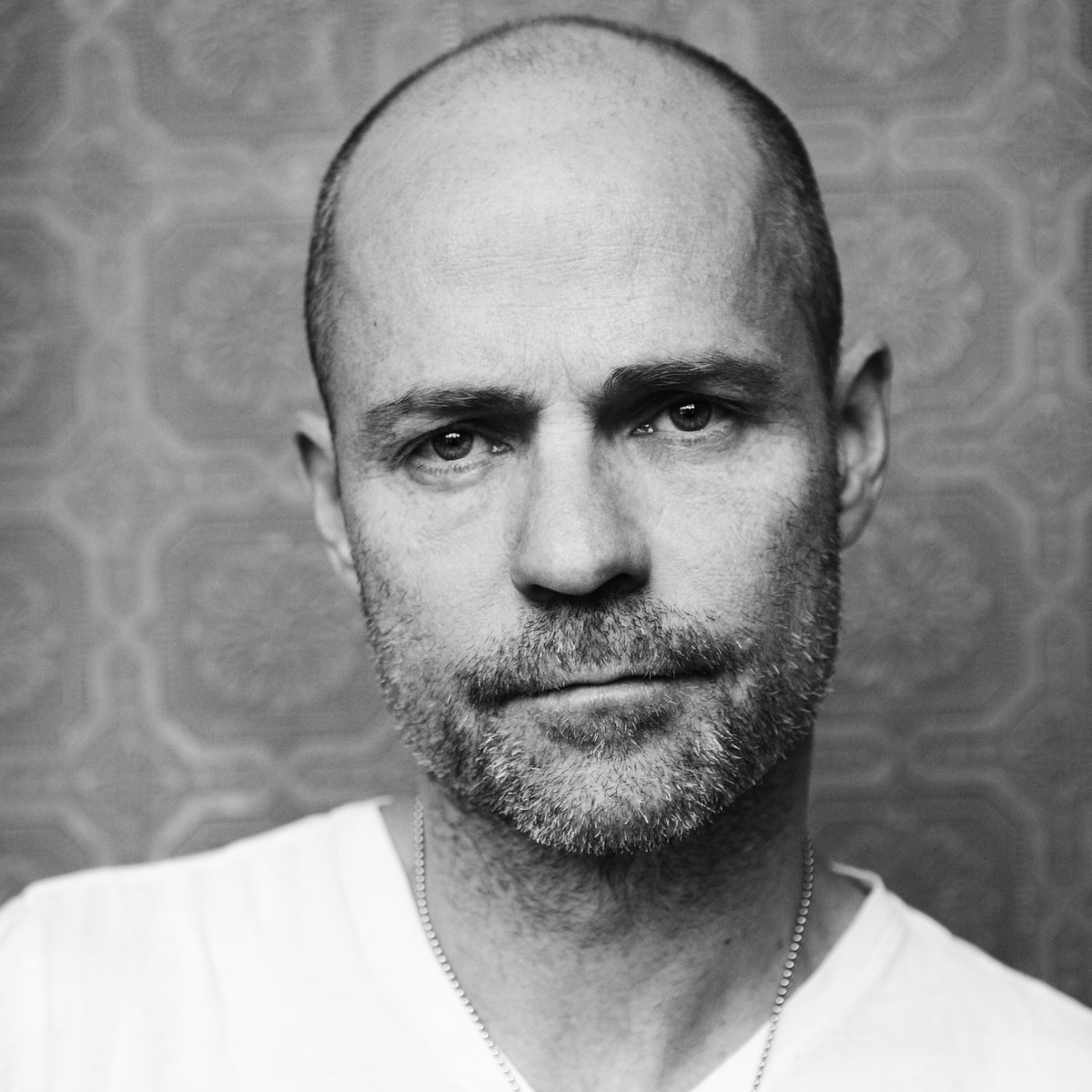
That Coke Machine Glow did not sound like a record by The Tragically Hip was both not a surprise, and is still in every way a surprising work: Downie’s oblique yet vicarious poetry undressed of its electricity, redressed in a glorious other voltage. A snapshot of spontaneity, recorded but barely rehearsed — its arc of clandestine art pop clashing with the hum of collective stream-of-consciousness — the album feels like a wild passage through listless places, burrowing in the magic of whatever delicate moment. Maybe Downie was the genius orchestrator of this Goddamned Band, or perhaps he was just always prepared with the right thing to say. You might have listened to this record for the last twenty years, and still not heard some of its finest details — that is the happenstance when onesome poetry is rightly crossed with collective improvisation. On Songwriters’ Cabal, the curtain is pulled back, as Downie rose from his kitchen table/hotel room desk, notebook in hand, and “stepped to the mic and sang, voice tinkling like a chandelier, until god or a reasonable facsimile appears.”
Finlayson recalls: “Having lived in Toronto for over 10 years, Gord wanted to make his first solo record in his adopted city. He had met and befriended many artists in different disciplines and was keen to collaborate with that community. The Gas Station recording studio was located in an old warehouse district of Toronto close to the exhibition grounds near King and Dufferin. Located on the fourth floor, it was an open spaced room with 10 foot windows that had spectacular views looking south to Lake Ontario and east towards downtown. Owned and operated by Dale Morningstar and Don Kerr, who after 10 years of operation were being evicted from this location. Coke Machine Glow ended up being the last session at the Gas Station, from April 29-May 10, 2000.
“The one concrete idea we had going into the recording was that Gord would sing these songs quietly, as they had been written. The recording room was large (50’X25′) with high ceilings. The musicians were spread throughout this room facing the centre where Gord was sitting. Don Kerr (drums) and Kevin Hearn (piano) were only available for the first day of recording which was also our set-up day. By late afternoon we were ready to start and their time constraints led to the decision that we were going to make a live-off-the-floor record using an 8-track machine. In hindsight, this was a fortuitous decision as it created a structure that forced us to work within certain parameters. All the songs ended up being cut live, including Gord’s vocals. The only overdubs were done by guests who weren’t available at the time and had to add their parts later. For the remainder of the session, Dave Clark took over on drums and Dale Morningstar, who was assistant engineering, played several different instruments throughout the recording. There was little rehearsal time for anyone, so in most cases the songs were run through once or twice and then recorded.”







